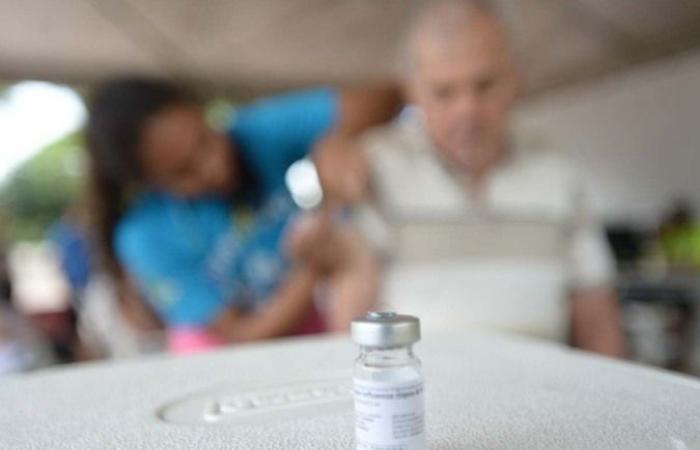The covid-19 pandemic decree, made by the World Health Organization, completed four years. Since then, Brazil has accumulated 38,729,836 confirmed cases and 711,249 deaths. Experts interviewed by Correio reflect on the challenges faced, in medicine and education, and the fight against misinformation that has increased since March 2020 when evaluating the consequences of the biggest health and hospital crisis in the country’s history.
Laila Salmen Espíndola, professor in the Pharmacy department at the University of Brasília (UnB) and advisor to the Brazilian Society for the Progress of Science (SBPC), believes that the pandemic still bears scientific fruit. At the time of the emergence of the coronavirus, she coordinated the postgraduate course in Medicine at the University of Brasília (UnB).
“Doctorate and master’s students, professors, everyone organized themselves to work with this (against the virus). Now, it’s a large group of those who are finishing the doctorate they started at that time. It was a very productive period. In Brazil and in world, the reaction of science was very quick. Thanks to all of this, vaccines were generated and we can be here today”, comments Laila, who adds that all clinical management currently used for the disease is the result of research carried out with infected patients.
“I think society understands that science is necessary, despite the disastrous political moment, which has made the situation much worse. Without science, without the vaccine, we literally die”, she argues.
In the opinion of the professor at the department of Political Science and International Relations at the University of São Paulo (USP), Rossana Rocha Reis, the Unified Health System, together with science, was strengthened. She remembers that, before the pandemic, there was a campaign to privatize the SUS and, with the disease, society realized the benefits of the free public service.
“From an information point of view, we learned that social networks have to be regulated, there is no way that social networks cannot take responsibility for what is published”, adds the expert, in reference to the high circulation of fake news published on internet profiles during the pandemic. Since then, social networks have begun to identify untrue information as fake news and block accounts that share this type of content.
The legal responsibility of the virtual world is also defended by Minister Alexandre de Moraes, of the Federal Supreme Court (STF). The issue is still under discussion in the Federal Senate, where there are proposals for changes to the Marco Civil da Internet to increase the responsibility of technology companies.
The wave of fake news in health also left as an “inheritance” the politicization of vaccines which, according to the USP professor, is currently reflected in the low vaccination coverage of other diseases in the country. The dengue vaccine, for example, made available this year, is in lower demand than expected in the priority age group, 10 to 14 years old. There will even be a redistribution of doses to other municipalities that had not been covered.
To defend the importance of vaccination, in a country that is internationally recognized by the National Immunization Program (PNI), the Butantan Institute created the Vaccine Museum. Opened in São Paulo, it tells the story of the creation of all vaccines in the world and in Brazil.
Educational harm
Education plays an important role in preventing the spread of fake news. The area, however, is still suffering from the consequences of the pandemic. Carolina Schmitt Nunes, PhD in Engineering and Knowledge Management from the Federal University of Santa Catarina (UFSC), highlights that the impacts in the area are still being measured. “The entire education system was put to the test at that moment. Especially for kindergarten and elementary education, it was more challenging,” she explains, highlighting that literacy was the school stage most affected by the coronavirus. The Literacy in Schools program, launched by the federal government in 2023, attempts to reverse this scenario.
“We already know that there was an increase in educational inequality. During that pandemic period when children and adolescents were out of school, there was a significant decrease in learning. It will take us more than a generation to reverse this situation. And yet We had the worst of all, which is the increase in school dropouts”, emphasizes the specialist.
School dropout has been one of the main concerns of the Minister of Education, Camilo Santana, who launched the Pé-de-Meia program as a strategy to stay in the classroom. High School savings pays a monthly amount to students enrolled in the Single Registry (CadÚnico), in addition to a deposit of R$1,000 at the end of each year. In total, students can receive up to R$9,200.
Among so many challenges, Carolina says she recognizes as a positive point the acceleration of digitalization in schools, which provided new teaching and learning methodologies. For her, there is still a closer look at mental health issues in this environment, both for students and teachers.
Did you like the article? Choose how to follow the main news from Correio:
Receive news on WhatsApp
Receive news on Telegram
Give your opinion! Correio has a space in the print edition to publish readers’ opinions via email at [email protected]






